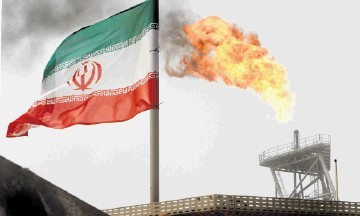
Iran is one of the most significant producers of crude oil and natural gas in the world. According to the OFAC Annual Statistical Bulletin 2015, Iran has proven crude oil deposits equating to 157,530 million barrels and natural gas reserves of 34,020 billion cubic/meters.
While subject to comprehensive international sanctions, the Iranian natural resources sector had severely limited access to international markets both for export and inward investment.
However, since the declaration of Implementation Day under the Joint Comprehensive Plan of Action (JCPOA), which resulted in the relaxation of EU and US secondary sanctions in return for Iranian compliance in the nuclear sector, the Iranian economy is no longer subject to such prohibitive restrictions.
Details of Iran’s first petroleum licensing round are expected to be announced in February. Notwithstanding the current low oil price environment, intense interest is expected as this will be a rare opportunity for E&P companies to gain access to proven, cheap to produce reserves in large quantities.
Although there are substantial opportunities for those involved in the oil and gas sector, companies should still be aware that a range of EU sanctions remain in effect and little has changed for US Persons who are still largely prohibited from any dealings with Iran.
Opportunities for Oil and Gas Companies
In an interview following Implementation Day, Seyed Hosseini, the Chairman of the Oil Contract Restructuring Committee, reported that Iran intends to produce 500,000 barrels of oil a day within a few months of Implementation Day and that by early 2017 it intends to produce an additional 1 million barrels of oil a day.
To achieve this, Mr Hosseini calculates that over $150 billion will need to be invested in the oil and gas sector within the next five years. The opportunities across the oil and gas sector, and at all levels of the market, are therefore substantial.
Changes to the EU Sanctions Regime
The most comprehensive changes following Implementation Day are in relation to the easing of EU sanctions, which included the removal of prohibitions on:
• the importation, purchase or transportation of crude oil, petroleum products, petrochemicals and natural gas;
• the supply, transfer or export of “key” equipment for the Iranian crude oil, natural gas or petrochemical industries; and
• the provision of financing or financial support, including insurance, reinsurance, and investment, for crude oil, petroleum products, petrochemicals and natural gas.
As a result, Iranian oil and gas can now be traded in most of the world’s markets and EU commodity traders will no longer be prohibited from trading Iranian crude or gas.
Further, those EU companies wishing to invest in the production or refining of Iranian crude will now be able to do so by investing in Iranian companies directly through equity or debt financing or by entering into joint ventures with Iranian counterparts.
The EU has also dramatically reduced the number of Iranian designated entities (including the bulk of those operating in the oil and gas sector) meaning that they are no longer subject to asset freezes and EU entities are free to deal with them (eg, NIOC and NIGC). However, certain Iranian entities who participate in Iran’s energy sector remain EU and US designated, so it is important that those wishing to do business in Iran undertake enhanced due diligence on counterparties.
US Sanctions
Despite the enthusiasm which has followed Implementation Day, all of the US primary sanctions (which apply to US Persons) remain in force. This means that US Persons are still prohibited from involvement in commercial dealings concerning Iran and US banks are still prohibited from clearing US dollar transactions related to Iranian dealings.
However, US secondary sanctions, which sought to target conduct by Non-US Persons, have been substantially rolled back. This means that non-US Persons can now deal with the 400 or so delisted entities without fear of the US taking retaliatory action and imposing penalties.
Ensuring Compliance with Continuing Sanctions
Whilst the vast majority of sanctions have been relaxed, it is important to note that a range of EU and US sanctions remain in effect and that companies must remain vigilant when dealing within Iran to avoid inadvertently breaching sanctions. Some practical issues to consider before entering the Iranian market include:
• ensuring that any US Persons (individuals or entities) are excluded from any dealings with Iran, which may, for example, require reconfiguration of board decision-making to ensure US directors do not breach US primary sanctions;
• confirming that existing banking arrangements are available given that US banks are prohibited from clearing US dollar payments and many non-US banks will remain hesitant to process payments involving Iranian trade;
• reviewing existing insurance policies and financial covenants in loan documents to ensure that there are no prohibitions on dealings with Iran;
• including provisions in contracts to deal with the possibility of a snap-back of EU and/or US sanctions should Iran fail to meet its obligations under the JCPOA.
The appeal of Iran’s oil and gas sector is obvious. No doubt there are first-mover advantages, but careful due diligence is still needed to avoid potential pitfalls and breaches of the remaining sanctions.
Clare Hatcher, Richard Devine, Brett Hartley and Thomas Chapple are all part of Clyde and Co’s oil and gas team
Recommended for you
